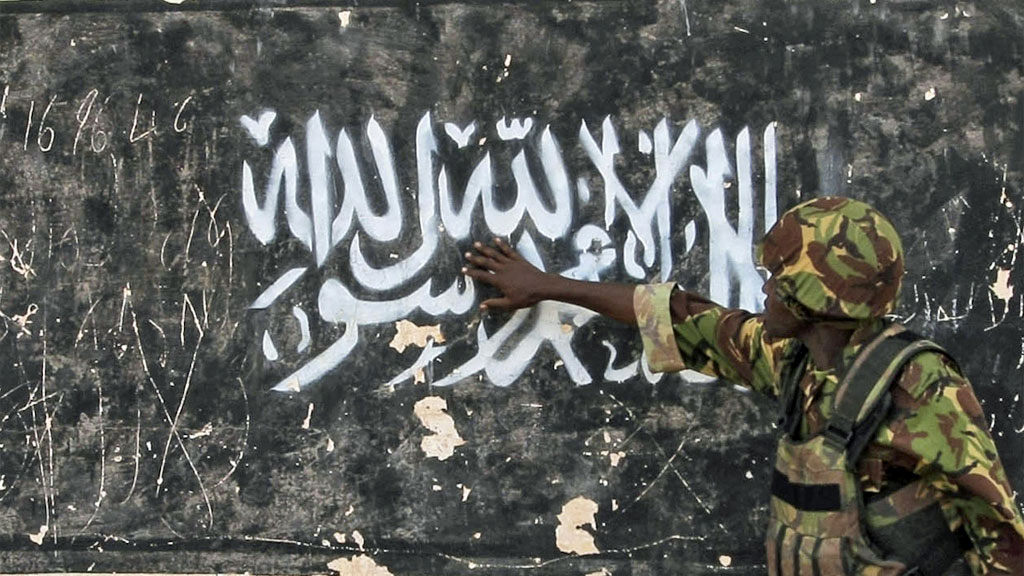British aid supplies lost to Somali militants
British humanitarian aid worth £480,000 has been captured by al-Qaeda linked militants, al-Shabaab, in southern Somalia.

Aid funded by British taxpayers was being held in warehouses seized by al-Shabaab militants and later believed to have been set ablaze, the Department for International Development (DfID) has admitted.
Details of the incidents were revealed in DfID’s annual accounts which claim that there was no prior warning of the attacks and partner organisations in Somalia were unable to move the supplies.
There was £480,000 written off with the explanation; “following the theft between November 2011 and February 2012, by al-Shabaab in southern Somalia, of DfID funded humanitarian materials and supplies from the offices and warehouses of partner organisations”.
Channel 4 News reporter Jamal Osman, an expert on Al-Shabaab, explains how the group has been gaining support
Setting aid products ablaze has been happening over recent years especially during the famine in 2011. Al-Shabab often arguee that the product is expired and therefore not fit for human consumption.
There have also been occasions when al-Shabab reportedly destroyed products that had the US flag on them. Even tough humanitarian agencies could avoid certain pitfalls such as siding with certain political groups, which makes them partisan and complicates their operation; working in Somalia is certainly one of the most difficult and dangerous assignments for aid workers.
There are so many different rival factions to please. If you are seen as being in favour of one, their foe will get angry.But in the case of the burning down of the food aid, it's important to understand local public mood and beliefs.
Somalia has not had a functioning central Government for over two decades and there are no authorities that are capable of monitoring imported goods.It is known that large percentage of food and drinks imported by businessmen are out of date.
Similarly, medicines that end up in pharmacies are often counterfeit or expired. Aid organisations are also accused of being part of this practice.Civilians, who have no power to stop potentially harmful products coming into the country, welcome anyone who claims to be tackling the problem. And regardless of the validity of the products, al-Shabab fighters know such policies are likely to make them popular in the eyes of the people.
In most cases when al-Shabab are destroying products they invite the local people and the media to witness the event. In fact, it is one of the actions that gives al-Shabab some credibility as an authority.
The group's standard statement says: al-Shabab "strives to protect the welfare of the entire Muslim population of Somalia and will implement all necessary safety measures to dissuade competing relief organisations from degrading their quality of life."
It is part of an on going battle between al-Shabab and many of the western aid organisations. Accusation and counter accusation are common. Western humanitarian workers accuse al-Shabab of denying access, demanding informal taxes and refusing female aid workers. In return, al-Shabab say the UN funds their enemies.
It is about winning the hearts and minds of the public. The group's adopted motto is: "Safeguarding the welfare of the Muslim Ummah."
“While the theft suffered represented a stores loss, the property was not stolen from DfID stores. DfID funding was provided to purchase goods but no benefit was received by the end recipient due to the theft.”
Al Shabaab, the Somali wing of al-Qaeda, controls large parts of southern Somalia where it imposes a form of Sharia law. The group is thought to number as many as 14,000 militants.
A spokesman for the department said they work in some of the most dangerous places in the world, including Somalia, tackling the root causes of poverty and instability to help “ensure a safer world and a safer UK”.
“Working in conflict-affected and fragile states carries inherent risk. DfID does all it can to mitigate against this but, on occasion, losses will occur.”